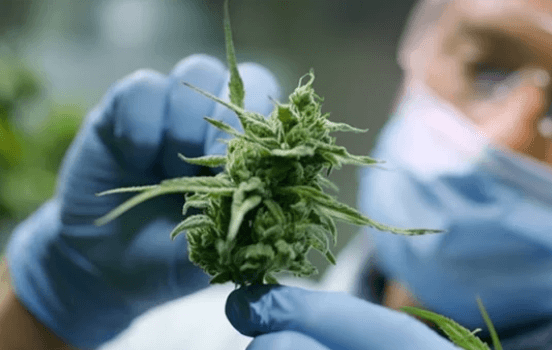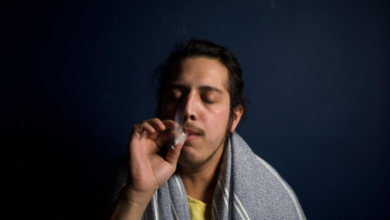The question of whether CBD can induce hallucinations is complex and warrants careful examination. While CBD is widely recognized for its non-psychoactive properties, individual reactions can vary significantly, influenced by factors such as dosage, personal sensitivity, and existing health conditions. Anecdotal reports of hallucinations, albeit rare, raise critical considerations about the safety and efficacy of CBD use. As we investigate the nuances surrounding these unexpected experiences, it becomes imperative to explore the underlying factors that may contribute to such phenomena. What does this mean for users and their understanding of CBD’s effects?
Understanding CBD and Its Effects
Cannabidiol (CBD) is a non-psychoactive compound derived from the Cannabis sativa plant, recognized for its potential therapeutic effects without inducing the euphoric ‘high’ commonly associated with tetrahydrocannabinol (THC).
While many tout CBD benefits, misconceptions about its effects can lead to confusion.
Understanding its properties is essential for informed decision-making regarding its use in managing various health conditions.
See also: Can I Travel With Cbd Internationally
The Science of Hallucinations
Hallucinations are complex phenomena that arise from various neurochemical mechanisms within the brain, often involving disruptions in normal sensory processing.
Understanding how substances like CBD interact with these neurochemical pathways is crucial for assessing their potential effects on perception.
Additionally, comparing the effects of CBD with those of other psychoactive substances can provide further insight into its safety profile and possible hallucinatory outcomes.
Understanding Hallucination Mechanisms
Exploring the neurobiological underpinnings of perception reveals that hallucinations often arise from complex interactions within the brain’s sensory processing systems.
Various hallucination types, including visual and auditory, emerge when sensory perception deviates from reality.
Factors such as neurotransmitter imbalances, altered brain connectivity, and environmental influences contribute to these experiences, emphasizing the intricate relationship between the mind’s interpretation of stimuli and external reality.
CBD’s Neurochemical Interactions
The neurochemical interactions of CBD within the brain may influence sensory perception, potentially altering the pathways associated with hallucinations.
CBD interacts primarily with cannabinoid receptors, modulating neurochemical pathways that govern mood and perception.
Research indicates that such interactions can affect the brain’s processing of sensory information, yet the precise mechanisms remain largely unexplored, warranting further investigation into CBD’s effects on perception and consciousness.
Comparative Substance Effects
Understanding the neurochemical interactions of various substances, including CBD, provides valuable insight into the mechanisms underlying hallucinations and how different compounds can influence sensory perception.
Substance comparisons reveal that while CBD is often surrounded by CBD myths regarding its psychoactive effects, it generally does not induce hallucinations like psychedelics or certain stimulants.
This emphasizes the importance of discerning the distinct effects of various substances.
Factors Influencing Hallucinations
Several factors can influence the occurrence of hallucinations, particularly in relation to CBD usage.
Key considerations include the dosage of CBD consumed and the individual’s unique health conditions, which may affect sensitivity to its effects.
Understanding these variables is essential for assessing the potential risks associated with CBD and hallucinations.
Dosage and Sensitivity
Dosage and individual sensitivity play crucial roles in determining the potential for hallucinations associated with CBD use.
Adhering to established dosage guidelines is essential, as excessive intake can amplify the risk of adverse effects.
Moreover, sensitivity variations among individuals—often influenced by genetic, physiological, or psychological factors—can lead to differing experiences with CBD, underscoring the importance of personalized approaches to consumption.
Individual Health Conditions
Considering individual health conditions is essential, as various medical issues and mental health disorders can influence the likelihood of experiencing hallucinations when using CBD.
Factors such as pre-existing psychiatric conditions or neurological disorders may heighten sensitivity to CBD interactions, leading to divergent individual responses.
Understanding these nuances is crucial for users seeking to harness CBD’s benefits while minimizing potential adverse effects, including hallucinations.
CBD Dosage and Risks
Determining the appropriate CBD dosage is crucial for minimizing potential risks and maximizing therapeutic benefits.
Following established CBD consumption guidelines can aid individuals in identifying their optimal dosage, leading to effective use.
A thorough CBD risk assessment is essential, as varying factors such as body weight, metabolism, and individual health conditions influence the overall effects and safety of CBD use.
User Experiences and Anecdotes
User experiences with CBD vary widely, with some individuals reporting positive effects such as reduced anxiety and improved sleep.
However, others have encountered unexpected reactions, including hallucinations.
Anecdotal evidence suggests that these adverse experiences may be influenced by factors such as dosage, individual biology, and product purity.
Understanding these diverse user experiences is crucial for informed decision-making regarding CBD use.
CBD and Mental Health Conditions
Research has increasingly explored the potential of CBD as a therapeutic option for various mental health conditions, suggesting its efficacy in alleviating symptoms of anxiety, depression, and post-traumatic stress disorder (PTSD).
Studies indicate that CBD may provide effective CBD anxiety relief and support CBD depression management, offering individuals an alternative approach to traditional treatments, fostering a greater sense of autonomy in their mental health care.
Legal and Regulatory Considerations
The legal and regulatory landscape surrounding CBD varies significantly across different jurisdictions, influencing both its availability and the scope of its use in therapeutic contexts.
Different legal frameworks establish varying degrees of access to CBD products, leading to regulatory challenges that can hinder research and consumer choice.
Understanding these complexities is essential for stakeholders seeking to navigate the evolving landscape of CBD regulation effectively.
Conclusion
In conclusion, while CBD is primarily regarded as non-psychoactive, its potential to induce hallucinations in certain individuals cannot be disregarded, particularly under specific conditions such as high dosage or pre-existing mental health issues.
A hypothetical case illustrates this concern: a patient using high doses of CBD for anxiety experienced visual distortions, leading to confusion and distress.
This emphasizes the necessity of adhering to recommended dosages and consulting healthcare professionals to mitigate risks associated with CBD consumption.





